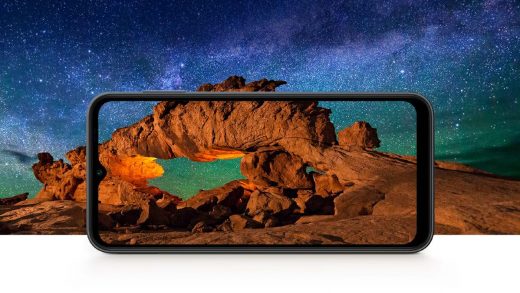:format(webp)/https://www.thestar.com/content/dam/thestar/entertainment/movies/2022/11/17/she-said-is-a-powerful-take-about-metoo-but-the-movie-also-feels-like-a-pat-on-the-back-for-the-new-york-times/she_said.jpg)
There’s a memorable moment near the end of Maria Schrader’s new film “She Said” — a fact-based drama chronicling the 2017 New York Times investigation into the crimes of Harvey Weinstein — where a pair of senior editors are taking one final look at an important story.
“Done,” says the first, looking up from the screen with straight-faced satisfaction. “Hold on,” says the other, who’s evidently a slightly slower reader. His eyes scan the copy for a few more seconds — a small eternity — before he concurs. “Done.” In a couple of short, precise strokes, the film evokes the mix of righteousness and oversight inherent in the Times motto “all the news that’s fit to print” — or, in this case, to upload to the web. Click. And the rest, as they say, is history.
As the first major Hollywood film to directly tackle the history and ideology of #MeToo (and with participation from survivors like Ashley Judd, who plays herself), “She Said” already occupies a significant place in history (although anybody interested in a more oblique take should check out Kitty Green’s shivery workplace horror movie “The Assistant”). Closely adapted by Rebecca Lenkiwiecz from Jodie Kantor’s and Megan Twohey’s bestselling book of the same name, and starring Zoe Kazan and Carey Mulligan in carefully studied performances as the indefatigable, fearless reporters, “She Said” arrives with plenty of awards season buzz.
Schrader’s film cannily pits its upstanding, have-it-all protagonists dialectically against the spidery machinations of Weinstein, who is barely seen and only briefly heard. In the absence of any real suspense about the story’s outcome — and understandably secure in the knowledge that its makers hold the same moral high ground as its subjects — “She Said” zeroes in on wringing drama out of the journalistic process itself: the gruelling game of inches by which scattered anecdotes coalesce into a focused, persuasive front-page feature. In this it’s a companion piece to 2015’s Best Picture-winning “Spotlight.”
The earlier and obvious model for the film’s mixture of virtuousness and verisimilitude is Alan J. Pakula’s 1976 anti-Nixon thriller “All the President’s Men,” with its hissable ripped-from-the-headlines villain and dogged, pavement-pounding protagonists embodied by charismatic, liberal A-listers. (A shot of Mulligan and Kazan working side by side in their office after hours pays a fleeting visual homage.)
By casting Robert Redford and Dustin Hoffman as Bob Woodward and Carl Bernstein, Pakula was, on one level, continuing Hollywood orthodoxy: going back to the 1930s, it would almost be easier to list the A-listers who didn’t play a star reporter. But the film’s ramrod righteousness also represented a break with tradition. For all their bleary-eyed struggles, Woodward and Bernstein are presented unambiguously as heroes in the services of higher motives, whereas earlier iterations of such characters tended — gloriously — toward the disreputable end of the professional spectrum.
In the acerbic “His Girl Friday” — a big-screen 1940s adaptation of Ben Hecht’s and Charles MacArthur’s smash-hit play “The Front Page” — the ace muckraker Hildy Johnson, played by Rosalind Russell, chides her editor Walter Burns (Cary Grant) by telling him, “You’re wonderful, in a loathsome sort of way.” A screwball farce tossed squarely at the audience at a hundred miles per hour, “His Girl Friday” features characters who are hopelessly in love with their vocation, as well as each other; fingers blistering at their typewriters as fresh copy comes in over the phone, Hildy and Walter aren’t just on deadline, but in heat. (Transcription is practically a form of foreplay.)
An opening title card wryly identifies the story as being set “in the Dark Ages of the newspaper game,” but if Howard Hawks’ film is relic of anything, it’s the true glory days of American newspaper movies — a cycle beginning during the Great Depression and extending past the Second World War until the advent of television. Over that period, Hollywood churned out a series of films that variously (and sometimes even simultaneously) glamourized, valorized and demonized the members of the Fourth Estate as hard-driving, fast-talking rascals; outsiders to the very society they sought to chronicle.
Fittingly for stories about a word-slinging milieu, these films were endlessly quotable, with characters speaking truth to power under a byline (and, often, their whiskey-soaked breath). Less than a year after “His Girl Friday” with its volley of one-liners, Orson Welles unveiled “Citizen Kane,” a cautionary tale whose eponymous media baron proclaims “it might be fun to run a newspaper.” A decade later, in 1951’s scabrously funny “Ace in the Hole,” Kirk Douglas’s freelance hellraiser promises his editor that “if there’s no news, I’ll go out and bite a dog.”
Typically, the best and most enduring movies about journalists have had little bits of jagged edge, whether it’s the frustration of Humphrey Bogart’s embattled editor-in-chief leveraging his bankrupt publication against his failing marriage in 1952’s scabrous “Deadline — U.S.A.” or the mania of Howard Beale, “the mad prophet of the airwaves” acted with Oscar-winning aplomb by the late Peter Finch in “Network” (1976).
Even a surpassingly smooth, commercial entertainment like James L. Brooks’ 1987 “Broadcast News” — a spiritual update of “His Girl Friday” that twists its central newsroom romance into a complex triangle — bristles with ambivalence about the industry it depicts so convincingly. It’s possible to draw a line between its brilliant centrepiece sequence, in which Albert Brooks’ brainy correspondent fatally overthinks his gig reading the news and the broad, so-dumb-it’s-brilliant satire of “Anchorman” (2004); both movies are, in their way, cautionary tales about modern journalism’s expedient embrace of style over substance, with Will Ferrell’s Ron Burgundy a hyperbolic stand-in for every well-coiffed numbskull who ever laid eyes on a teleprompter.
That there’s no comedy in “She Said” is unsurprising given its dead-serious subject matter; the same goes for “Spotlight.” The scenes between Mulligan and Kazan are also interestingly free of collegial tension or one-upmanship, where Redford and Hoffman bickered their way through “All the President’s Men” (as much avatars of competitive courtship as Cary Grant and Rosalind Russell). Twohey and Kantor are mutually sympathetic and supportive to one another, a dynamic in keeping with the material’s deeper theme of gender solidarity (the vibe extends to Patricia Clarkson’s excellent supporting performance as the veteran editor Rebecca Corbett).
The problem with all those good vibes, however, is that they have the effect of making the narrative’s race against time feel like a bit of a victory lap — a deferential homage to the rigour and trustworthiness of the New York Times.
Twohey and Kantor deservedly earned Pulitzers for their efforts in holding a powerful abuser to account and starting a wider conversation about sexual assault, and yet there’s something self-serving in the way the film suggests that the media has done its part. “She Said” may yet win some Oscars but, if not, it will just have to make do with its own healthy sense of self-congratulation.
In the context of the film’s other subject, journalism itself, this feels a bit like whistling in the dark. With the business side of newspapers under threat from shrinking ad revenues and paid readership — and editorial oversight, their raison d’être, hobbled by widespread whispers of fake news and media conspiracy — the news business seems a long way from the one portrayed in “His Girl Friday” or “All the President’s Men.” Against this backdrop, “She Said” and its tale of front-page heroics feel almost prematurely like a period piece.
JOIN THE CONVERSATION

:format(webp)/https://www.thestar.com/content/dam/thestar/entertainment/movies/2022/11/17/she-said-is-a-powerful-take-about-metoo-but-the-movie-also-feels-like-a-pat-on-the-back-for-the-new-york-times/she_said_2.jpg)
:format(webp)/https://www.thestar.com/content/dam/thestar/entertainment/movies/2022/11/17/she-said-is-a-powerful-take-about-metoo-but-the-movie-also-feels-like-a-pat-on-the-back-for-the-new-york-times/zoe_kazan.jpg)


